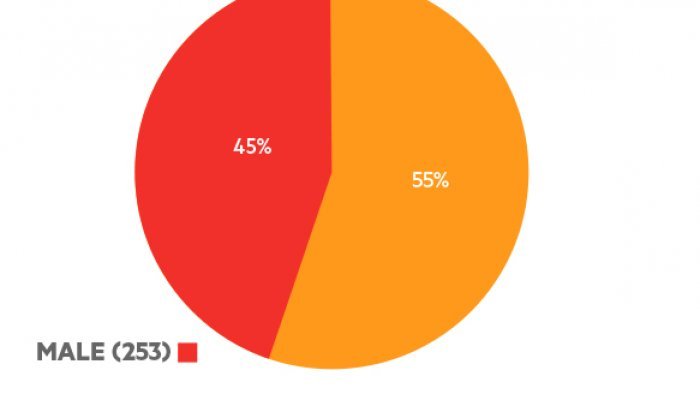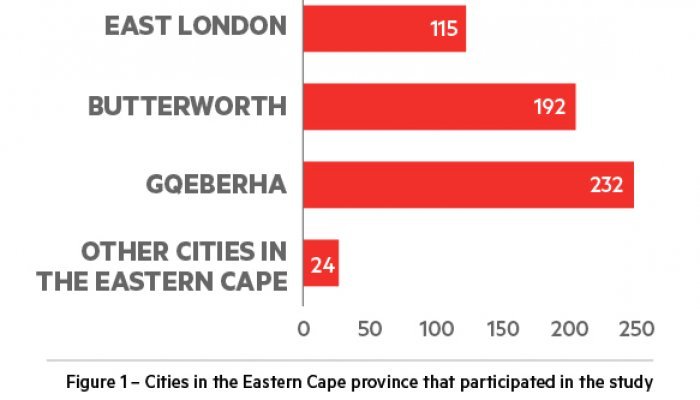*Professor Chinyamurindi and Dr. Mathibe are part of a collaborative project exploring dynamic capabilities within the Eastern Cape’s informal sector. They both write in their own capacity.
The Covid-19 pandemic has had a devastating effect on the livelihoods of many businesses, including those in the informal sector. So, we set out to investigate the pandemic's impact on South Africa’s informal sector, focusing on the Eastern Cape. This article shares the survey findings and recommendations on how government can assist the informal sector, both now and post-pandemic.
The vibrant informal sector, although small scale, provides an alternative form of employment that contributes to the formal economy, especially in sub-Saharan African countries. However, there’s been a growing debate about whether this shadow economy should be viewed as a survival sector, or an entrepreneurial sector that can stimulate job creation and, ultimately, economic growth.
The informal sector accounts for 90% of employment in developing countries, 67% in middle-income countries and 18% in high-income countries.1 In 2020, over 62% of workers worldwide earned a living through the informal sector. In South Africa, the informal sector makes up about 18% of gross domestic product (GDP).2 According to Statistics South Africa's Q2 2021 Quarterly Labour Force Survey,3 informal sector employment increased by 184,000 people compared to the previous quarter. The gains in informal sector employment were driven by the trade, transport, construction, manufacturing, mining, and utilities industries.
Though this may be the case, during the pandemic, this sector was found to have been excluded from Covid-19 crisis-related and short-term financial assistance programmes for businesses.
The informal sector makes up a significant part of developing economies; however, they are often marginalised and receive very little to no support from government programmes. This might result from operating under the radar and often not contributing to taxes. Yet, despite employing workers with limited skills, most of the businesses in this sector contribute to African countries’ GDP.
Surveying the Eastern Cape’s informal sector
The Covid-19 pandemic and the national restrictions imposed by the South African government on non-essential businesses had a devastating impact on many economies. Already an unequal society struggling with high unemployment rates pre-pandemic, it’s no wonder that when the economy was under strict lockdown, many jobs were shed, leading to increased poverty levels.
The challenge imposed by the current Covid-19 pandemic made the timing of this study critical as we wanted to determine the impact of the pandemic on the informal sector, specifically in the Eastern Cape. This province has a high informal sector presence and faced a high number of infections during the pandemic.
We applied mixed methods with a sample size of 563 questionnaires and 30 semi-interviews with traders and entrepreneurs.
Survey results
The survey participants were mainly from three Eastern Cape cities – Gqeberha, formerly known as Port Elizabeth (232), Butterworth (192) and East London (115). The remaining 24 participants were from other cities in the province (Figure 1).
Figure 1 – Cities in the Eastern Cape province that participated in the study
Of the 563 entrepreneurs within the Eastern Cape’s informal sector that took part in the survey, 55.1% were female and 44.9% male (Figure 2).
Figure 2 – Number of survey participants by gender
Our findings revealed that about 65% of participants indicated that their businesses were not registered. A total of 62% of the participants said they employed between 1 and 4 people.
When measuring the impact Covid-19 had on these informal businesses, most of them (53.5%) said they were severely affected by the pandemic, but 59.7% said they did not foresee business closure resulting from the pandemic.
In terms of benefits, few participants (42.5%) were not aware of government benefits in assisting with the growth of their business. Meanwhile, 59.5% indicated that it was very difficult to access these benefits (Figure 3).
Our recommendation
Even though Africa’s response to the pandemic is beginning to take shape, the varying economic, social and political contexts make it harder for the region to draw many relevant lessons learnt from the likes of China and other western countries.
While African governments’ policy response to Covid-19 mirrored that of their global counterparts, it has still been found wanting in the implementation at a local level.
Our observation of the informal sector in the Eastern Cape is that as Covid-19 contracts the economy and more jobs are shed, an increasing number of people find themselves entering informal business either as owners or as employees.
Our recommendation would be for the provincial government to find means and ways to accommodate this sector and acknowledge the significant role informal businesses play in supporting the formal sector.
However, this requires the collation of evidence-based research and data that will clearly document and present the vibrant activities in the informal sector, including how this contributes to the Eastern Cape’s outlook. We suggest that the Eastern Cape assists its informal sector using these four key action plans:
- Inclusivity. Inclusion of the informal sector in the provincial economic agenda is essential, with strategies that factor in the new realities faced by traders on the ground due to the Covid-19 pandemic.
- Structure and organisation. The province’s informal sector needs to be more organised, which may entail creating and maintaining an informal business registry at a municipal level. This registry would inform the scale of going concerns among informal businesses on the ground, resulting in the municipalities implementing various interventions in support of the informal sector.
- Financing. Like our African counterparts, South Africa must focus on informal sector financing, which will likely ensure some form of sustainability for this vulnerable sector.
- Upskilling. The informal sector is in dire need of continued soft business skills training, interventions and support services to ensure both growth and sustainability.
In conclusion, it is important that informal traders are educated on why they need to be registered for tax purposes. Taxes that the government collects from small businesses are also injected into programmes that can benefit them.
It's also important that businesses see that the cost of remaining informal is relatively higher for some in the sector. Therefore, legitimising the informal sector with the view of incorporating them into a new low-cost business ecosystem is important. There's also a growing need for well-designed policies to enable and support the sector rather than suppress it.
How Eastern Cape youth remain entrepreneurial during the pandemic
In the first half of 2020, we conducted interviews with men and women within the Eastern Cape who have turned to the informal sector for survival. It would seem a common thread that weaves through the stories shared with us mirrors the ideals of resuscitating the economy and job creation.
In the Mnquma municipality, we met Ludwe, who lost his job in Johannesburg due to the Covid-19 pandemic. So dire was his situation that he left Johannesburg for his hometown of Butterworth. With no source of income, Ludwe used the little resources he had to start a food vending business within the local precinct. Months into the pandemic and amid a difficult economy, Ludwe found his new venture as an ideal source of income and has a growing clientele.
This is a similar journey undertaken by unemployed youths in the Nqamakwe area who were expanding themselves to earn a living. Their entrepreneurial ventures varied from street vending to part-time artisan work, and even to tree felling services.
In Qgeberha, to earn a living rather than turning to destructive activities in the streets, a group of youths formed a car wash service for their local community.
All these experiences, although anecdotal, attest to the survivalist nature of the informal sector. The economic difficulty and job shedding that resulted from the Covid-19 pandemic served as a catalyst for many people to find innovative ways of venturing into the informal trade as a means of survival.
How SMMEs can thrive amid Covid-19 challenges
The Covid-19 pandemic has forced businesses, including those in the informal sector, to be innovative in generating and increasing their revenue streams. Here are some ways small businesses can help to ensure their survival:
- Use technology and social media to reach new customers. This is low cost and can reach potential customers beyond your immediate physical environment.
- Enhance your market access strategy. Draft a plan on how you will get new customers and increase your market share in the sector.
- Drive operational efficiencies. Be smart about daily business operations not by making people redundant but by reducing the hours each works. This will assist in saving costs for business survival while ensuring employees from communities can sustain their livelihood and take care of their families.
- Develop skills and capabilities. Operating on lean staff, the team will likely take on more responsibilities. Use this opportunity to develop your team’s leadership skills by being leaders in whichever role they fill.
Source: McKinsey & Company
Professor Willie Tafadzwa Chinyamurindi
Professor Willie Tafadzwa Chinyamurindi in the Department of Business Management at the University of Fort Hare and a National Research Foundation (NRF) Rated Researcher (Y2) considers himself a pan-Africanist. He is a scholar who intends to promote such ideals in his work. In 2021, he served as co-chair of the South African Young Academy of Science in addition to his professional membership with the society.
Dr. Motshedisi Mathibe
Dr. Motshedisi Mathibe is full-time faculty at GIBS. Her research interests are social entrepreneurship, women entrepreneurship, the informal sector, the township economy, and base of the pyramid markets.
In addition to teaching and research responsibilities, Mathibe is involved with the United Nations' Global Impact Young Sustainable Development Goals Innovators Programme. Here, she mentors and supports a team of young innovators in their efforts to frame a challenge, applying sustainable business and innovative concepts/ideas to create tangible business solutions with real market potential.
1 ILO brief on the Covid-19 crisis and the informal sector (Source: https://www.ilo.org/wcmsp5/groups/public/---ed_protect/---protrav/---travail/documents/briefingnote/wcms_743623.pdf )
2 South Africa’s informal sector: why people get stuck in precarious jobs (Source: https://theconversation.com/south-africas-informal-sector-why-people-get-stuck-in-precarious-jobs-113401)
3 Quarterly Labour Force Survey for Q2 of 2021 (Source: https://www.statssa.gov.za/publications/P0211/P02112ndQuarter2021.pdf)







